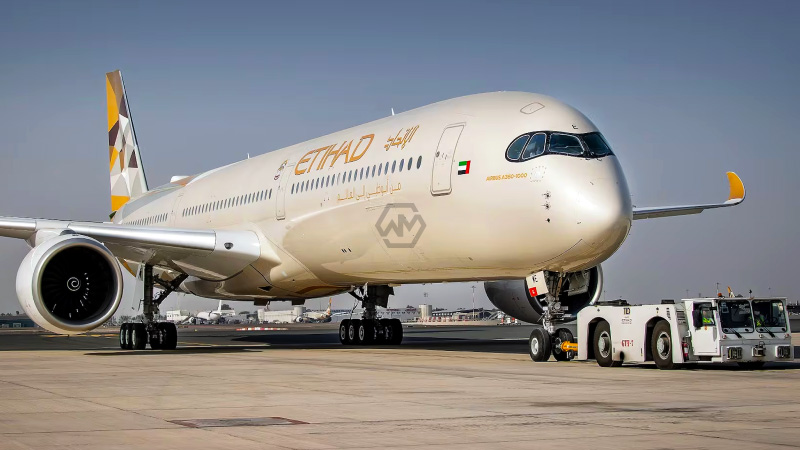- Etihad Airways initiates fleet-wide inspection of Boeing 787 fuel switch locks.
- The move follows a fatal Air India crash linked to inadvertent fuel cutoff.
- Airlines act on old FAA warnings as global scrutiny of aircraft safety grows.
Etihad Airways has ordered urgent inspections of the fuel control switch locking mechanisms on its Boeing 787 Dreamliners after a tragic Air India crash killed 270 people.
The investigation also highlighted that a 2018 FAA advisory had previously warned airlines about potential vulnerabilities in Boeing 787’s switch locking system, though it was never followed by a formal directive.
Boeing 787 Fuel Switches Under Global Review Following India Crash Probe
The Aircraft Accident Investigation Bureau (AAIB) released its preliminary findings on July 12, uncovering that both engine fuel control switches had unintentionally shifted to the “CUTOFF” position within seconds of liftoff. Cockpit voice recordings captured the confusion between the pilots, one of whom denied manually cutting off the fuel supply. This discovery raised immediate concerns about whether the locking mechanism, designed to prevent such a shift, failed or was bypassed unknowingly.
Etihad’s directive mandates that if engineers find the switches can be moved without lifting the locking mechanism, the aircraft’s Thrust Control Module must be replaced before further operation. This engineering check goes beyond routine inspections and highlights a renewed focus on manual controls that, while seemingly minor, can have catastrophic consequences if malfunctioning or misused.
Air India CEO Campbell Wilson addressed the findings in a letter to staff, emphasizing that the aircraft had no known mechanical defects and all mandatory maintenance tasks had been completed. The report also ruled out fuel contamination, pilot health issues, or takeoff abnormalities, placing the spotlight on human factors and cockpit interface design.
This tragedy has reignited debates over whether safety advisories like the FAA’s 2018 notice should be treated as mandates. While not legally binding, such advisories often contain critical insights that could prevent disasters. The aviation industry now faces increasing pressure to revisit older warnings and implement preemptive checks, especially when human-machine interactions are involved.
The aftermath of Flight AI-171’s crash has triggered a ripple effect across global aviation, urging airlines to reassess safety measures that were once considered sufficient.
“The safety of the people shall be the highest law.” – Marcus Tullius Cicero



